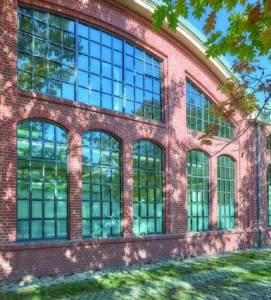As someone who has worked in the construction industry for several years, I cannot overstate the importance of building aggregates. These materials are fundamental to the success of any construction project, providing the stability, strength, and durability that are necessary for any building or road to stand the test of time. In fact, aggregates are so essential to construction that they form the very foundation of most infrastructure. Whether you are building a new home, remodeling an existing one, or constructing a road or bridge, aggregates play a critical role in ensuring that the end product is safe, functional, and aesthetically pleasing.
But what exactly are building aggregates, and why are they so important in the construction industry? In simple terms, aggregates are a collection of materials, such as sand, gravel, stone, or crushed rock, that are used in the construction of various structures. Aggregates come in a wide variety of shapes and sizes, which makes them suitable for a wide range of applications. From filling gaps and providing drainage to providing a stable base for concrete and asphalt, there is no limit to the uses of aggregates in construction.
But perhaps the most important reason why building aggregates are so essential in the construction industry is that they provide the necessary structural strength and stability to construction projects. Without aggregates, many construction projects would simply not be possible. Aggregates are used to provide the foundation for roads, buildings, and other infrastructure. They are also used to improve the aesthetics of a project and reduce maintenance costs. In short, aggregates are the backbone of the construction industry, and without them, we would be unable to build the world-class infrastructure that underpins modern society.
So, if you are considering embarking on a construction project, it is important to understand the role that aggregates play and to choose the right type of aggregate for your job. Whether you need sand for a concrete mix, gravel for a driveway, or crushed rock for a road base, there are a variety of building aggregates available that will meet your needs. By doing your research and selecting the right aggregate for your job, you can ensure that your construction project is a success.
As a home improvement enthusiast, I know that building aggregates are essential to the success of any construction project. Building aggregates are materials like gravel, sand, and crushed stone that are used to provide the necessary structural strength and stability to a structure. They are often mixed with cement and water to form concrete, which is then used to create foundations, walls, and other building elements.
Using building aggregates can be a great way to save money on a construction project. They are inexpensive and can be found at most hardware stores. When purchasing building aggregates, it is important to consider the size and type of aggregate you need for your project. For example, if you are using the aggregate for a driveway, you will need a different type and size than if you are using it for a foundation.
In addition to purchasing the right type and size of aggregate, it is also important to consider the quality. It is best to look for building aggregates that are clean and free of debris. You should also make sure that the aggregate is appropriately graded, meaning that it is of the right size and shape for your project.
By following these tips, you can ensure that you are purchasing the right building aggregate for your construction project. This will help ensure the success of your project, and make sure that it is built to last.
They provide the foundation for roads, buildings, and other infrastructure.
Hello there! Are you in the process of buying a property or a piece of land? If so, then you need to consider the foundation of the property before making any purchase decisions.
The foundation of any structure provides the necessary support for buildings and other infrastructure such as roads. Without a good foundation, any structure could be at risk of collapsing over time, which could lead to catastrophic consequences.
When buying a property, you need to take into account the type of foundation that has been used in the construction. A solid foundation provides stability and helps prevent damage from water, soil erosion, and other natural disasters.
It's also important to consider the soil type and the climate of the area when deciding on the foundation type. Certain soil types are unsuitable for certain types of foundations, so it's best to consult with a professional to determine the best foundation type for the property.
it's important to pay close attention to the foundation of any property you are considering to purchase. Because the foundation is literally the base of any structure, it's critical to ensure that it's reliable and sturdy. This will help ensure that the property remains stable and secure for years to come.
Aggregates are also used to improve the aesthetics of a project and reduce maintenance costs.
As a professional builder, I know how important it is to choose the right materials for each project. Aggregates are one of those materials that often get overlooked, but they can make a big difference in both the aesthetics and maintenance costs of a project.
Firstly, aggregates can greatly improve the appearance of a project. By adding different colors and textures, aggregates can create a unique and visually appealing surface that stands out from the rest. Whether you're looking to create a modern, sleek look or a rustic, natural appearance, there are countless aggregate options to choose from.
Additionally, using aggregates can reduce maintenance costs over time. For example, if you're working on a driveway or walkway, aggregates can be used to create a porous surface that allows water to drain away quickly. This helps prevent standing water from causing damage and reduces the need for costly maintenance and repairs.
When selecting aggregates, it's important to consider a few key factors. First, think about the purpose of the project and what type of aggregate would work best. Next, consider the color and texture that would complement the surrounding area. Finally, look for high-quality aggregates that are sourced from reputable suppliers.
Overall, taking the time to choose the right aggregates can pay off in both the long and short term. So if you're working on any type of construction or landscaping project, consider incorporating aggregates for an added aesthetic boost and reduced maintenance costs.
Building aggregates come in a variety of sizes and shapes, making them suitable for a wide range of applications.
As someone who has spent a lot of time working on construction projects, I can assure you that building aggregates come in all shapes and sizes. And, believe it or not, the size and shape of these materials matter a lot when it comes to their ultimate use.
First and foremost, building aggregates are meant to help strengthen and stabilize projects from the ground up. Whether you're building a new road, creating a foundation for a house, or just trying to level out a piece of land, aggregates are essential.
But, as I mentioned earlier, not all aggregates are created equal. Some are larger, and therefore better suited for heavier projects, while others are finer and work better for smoothing out surfaces. Additionally, the shape of the aggregates can impact their usefulness – rounder materials tend to be better for drainage, while jagged materials offer more grip and stability.
So, when you're shopping for building aggregates, it's important to consider all of these factors. Take the time to research the different types of aggregates available, and don't be afraid to ask for guidance from an expert. Ultimately, the goal is to find the right size and shape of material for your specific project, so that you can achieve the best possible results.
It is important to select the right type of aggregate for the job to ensure a successful outcome.
When it comes to construction projects, selecting the right type of aggregate is crucial for ensuring a successful outcome. As someone who has made a mistake in this area before, I can tell you firsthand how important it is to take the time to research and choose the right type of aggregate for the job.
First, it's essential to understand what aggregate is. Put simply, it's a mixture of materials such as crushed stone, gravel, sand, or recycled concrete that is added to cement and water to make concrete. The type of aggregate you choose will depend on the specific needs of your project. For example, if you're building a road, you'll want aggregate that is durable and able to withstand heavy traffic, whereas if you're building a patio, you'll want something more decorative and aesthetically pleasing.
One common mistake people make when selecting aggregate is choosing based on price alone. While it may be tempting to choose the cheapest option, it's important to remember that the quality of the aggregate will directly impact the quality of the finished product. This means that it's often worth spending a little more upfront to get a better quality aggregate that will last longer and perform better.
In addition to cost, other factors to consider when selecting aggregate include the size and shape of the particles, as well as their hardness and durability. By taking the time to research and select the right type of aggregate for your project, you'll set yourself up for a successful outcome that will last for years to come.
Conclusion
Building aggregates are vital in the construction industry due to their various roles. They provide structural support and foundation for constructing infrastructure and also enhance the appearance of the project. They come in different sizes and shapes, making them adaptable for diverse construction requirements. Ultimately, understanding the importance of building aggregates can help you make informed decisions when it comes to building projects, improving your life and ensuring cost-effectiveness measures are employed in all your construction undertakings.













